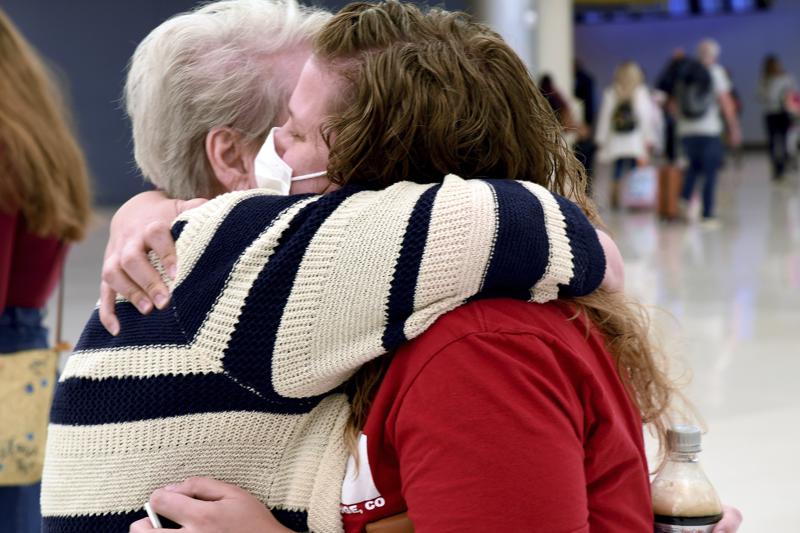Pauline Criel and her cousins talked about reuniting for Thanksgiving at her home near Detroit after many painful months of seclusion because of the COVID-19 pandemic.
But the virus had a different plan. Michigan is now the nation’s hot spot. Hospitals there are teeming with patients, and schools are scaling back in-person learning. A resurgent virus has pushed new infections in the U.S. to 95,000 daily, hospitals in Minnesota, Colorado and Arizona are also under pressure, and health officials are pleading with unvaccinated people not to travel.
Criel’s big family feast was put on hold. She is roasting a turkey and whipping together a pistachio fluff salad — an annual tradition — but only for her, her husband and two grown boys.
“I’m going to wear my stretchy pants and eat too much — and no one’s going to care,” she said.
Her story reflects the Thanksgiving dilemma that families across America are facing as the gatherings become burdened with the same political and coronavirus debates consuming other arenas.
The desire to bring family and friends back together for Thanksgiving was evident Wednesday in San Francisco, where the line at one grocery store stretched out the door and around the corner.
Despite her trepidations, Letchinger is looking forward to the annual family ritual, which includes a generous complement of Jewish favorites — like the golumpkis, or stuffed cabbage, that her late aunt Susie used to bring to the Thanksgiving feast.
But the celebration will have somber undertones as well. The family lost two loved ones, both Holocaust survivors, after bouts with COVID-19 last year.
APN


